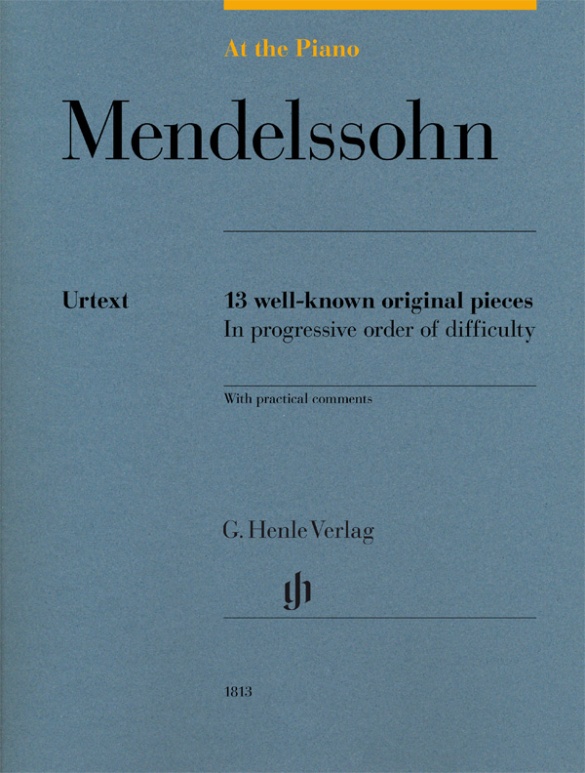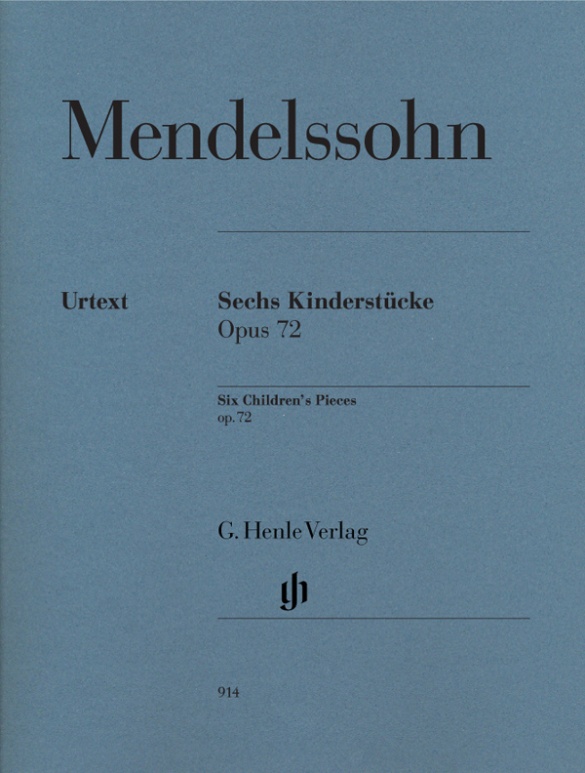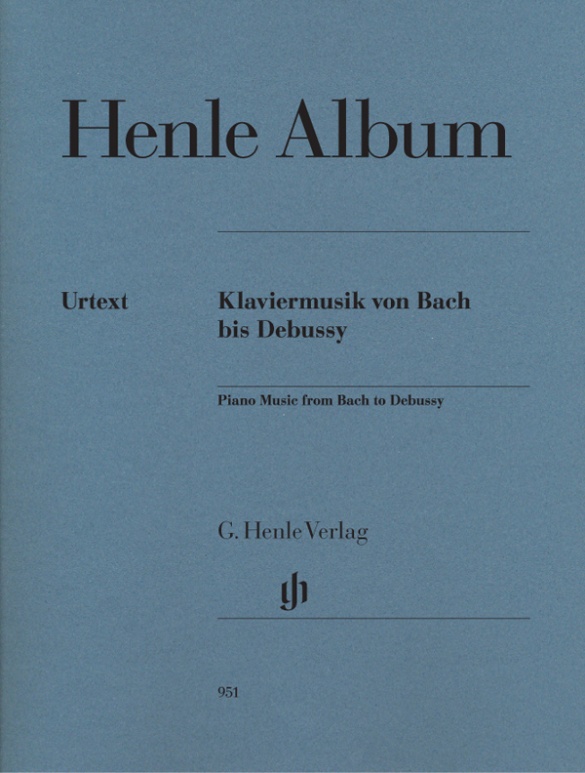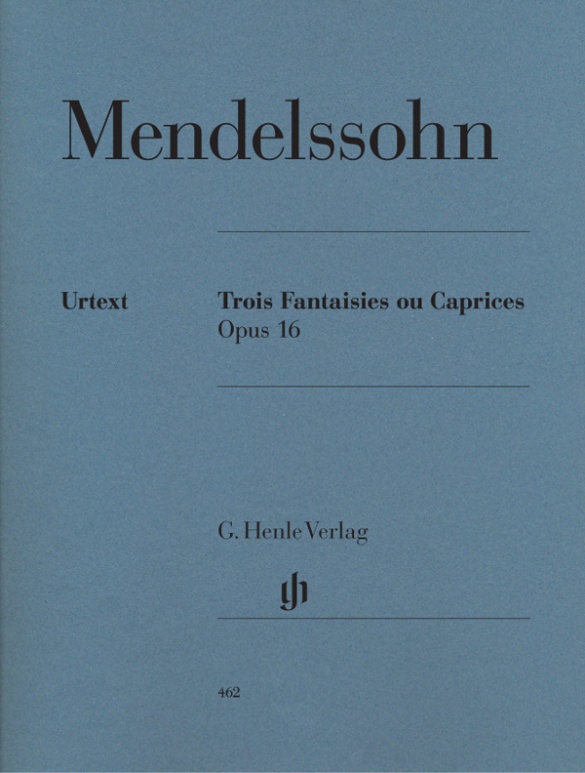Felix Mendelssohn Bartholdy
At the Piano - 13 well-known original pieces
At the piano with Mendelssohn – everyone naturally thinks first of his wonderful Songs without Words, from which we have chosen a varied selection here. But there are other pieces in this volume that are no less fascinating, such as several of his enchanting children’s pieces, which belong alongside Robert Schumann’s Kinderszenen. In compositions such as the Prelude in f minor, we can also discern the love that Mendelssohn the German Romantic bore for the polyphony of J. S. Bach.
内容/詳細
作曲家について
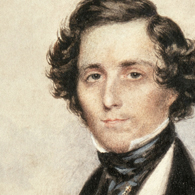
Felix Mendelssohn Bartholdy
A German composer, conductor, pianist, and organist who already numbered among the most important composers in Europe during his lifetime. While still young he found a unique tonal language. Reflected in his oeuvre, which spans all genres, are the contradictory tendencies of the age – Classicism and Romanticism. His endeavors over the course his life to perform the works of Johann Sebastian Bach led to a “rediscovery” of that composer which continues unabated. His intensive engagement with Bach and his counterpoint influenced his own compositional technique.
| 1809 | Born into a wealthy banker’s family in Hamburg on February 3. Escape to Berlin with his parents in 1811. First musical instruction from his mother. |
| 1819 | He becomes a pupil of Carl Friedrich Zelter. |
| 1820 | Joins the Sing-Akademie in Berlin. |
| 1821–23 | Twelve sinfonias for strings. |
| 1825 | String Octet in E-flat major, Op. 20. |
| 1826 | Overture to “A Midsummer Night’s Dream,” Op. 21 |
| 1827 | Begins studies at the University of Berlin. |
| 1829 | Revival of Bach’s St. Matthew Passion in Berlin on March 11 and 21. Travels to England and Scotland. |
| 1829–30 | “Reformation” Symphony in D minor, [Op. 107], with inclusion of the choral “Ein feste Burg“ (A Mighty Fortress Is Our God.) |
| 1830–32 | Extended travels, including to Italy and France. Piano Concerto in G minor, Op. 25; Overture in B minor, Op. 26, “The Hebrides, or Fingal’s Cave” (1829–30). |
| 1833 | Music director in Düsseldorf. “Italian” Symphony in A major, Op. 90 (1830–33). |
| 1835 | Director of the Gewandhaus concerts in Leipzig. |
| 1836 | Premiere in Düsseldorf of his oratorio “St. Paul: Oratorio on Words of the Holy Bible,” Op. 36. |
| 1838-44 | Violin Concerto in E minor, Op. 64. |
| 1840 | Composition of “Hymn of Praise, a Symphony-Cantata on Words of the Holy Bible,” Op. 52. |
| 1841 | Berlin, in the service of the Prussian king. “Variations sérieuses” in D minor, Op. 54, for piano. |
| 1842 | Completion of Symphony No. 3 (“Scottish”) in A minor, Op. 56, with a songlike opening. |
| 1843 | Incidental music to Shakespeare’s “A Midsummer Night’s Dream,” Op. 61. Director of the newly founded Leipzig Conservatory. |
| 1846 | Premiere of his oratorio “Elijah,” Op. 70, in Birmingham. |
| 1847 | String Quartet in F minor, [Op. 80]. Death in Leipzig on November 4. |
校訂者や運指担当者について
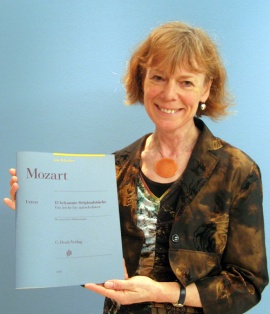
Sylvia Hewig-Tröscher (校訂, 運指)
Sylvia Hewig-Tröscher studied piano at the Hochschule für Musik in Munich under Erik Then-Bergh and Hermann Reutter, as well as under Louis Hiltbrand at the Conservatoire de Musique in Geneva. 1977 she finished the „ Classe de Virtuosité“ in Geneva with the Premier Prix avec distinction and received the Henry Broliet prize as well as being awarded the GEDOK prize. Also organ studies under Lionel Rogg finishing with the „Diplome d’Orgue“. Masterclasses with George Halmos, Klaus Schilde, Karl Seemann and Wilhelm Kempff, followed, as well as with the cembalo player Li StadelmannIn. 1977 the piano trio Orfeo was established.
Since then, as a solo pianist and chamber musician, her concert activities have led her to Germany, Switzerland, France, Italy, Austria, America, Egypt, India, Korea, and Japan. The list of recordings includes Bayerischer Rundfunk and Südwestfunk Freiburg, Baden-Baden, record and CD recordings of (among others) seldom played works of the classical and romantic periods with Musica Bavarica. Further CD recordings including modern music and first performances with Calig, Symicon, Bayer Records, Arts Magnamedia, and Sony, also co-production of the Bayreischer Rundfunk and Deutscher Musikrat.
Masterclasses in Villa Marteau, Marktoberdorf, Hammelburg, Brixen, Castelnuovo di Garfagnana and New York. Today Sylvia Hewig-Tröscher works as a professor of piano and vice president of the Hochschule für Musik and Theater Munich.
製品安全に関する情報

G. Henle Verlag
製品の製造元に関する情報はこちらでご覧いただけます。G. Henle Verlag
Forstenrieder Allee 122
81476 München
info@henle.de
www.henle.com
At The Piano is an excellent series for students and teachers. Those who fancy learning a major composer’s ‘piano favourites’ will really enjoy working their way through each book. G. Henle have combined a scrupulous ‘pure’ score with plenty of valuable information, offering a fascinating glimpse into the history and style of each composer.
Melanie Spanswick, 2018おすすめ
autogenerated_cross_selling
このタイトルを含む他の版
このタイトルを含む他の版


